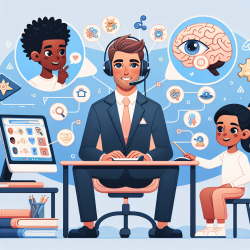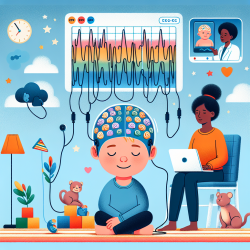Language skills are critical for children’s academic and social success. Children with Attention Deficit Hyperactivity Disorder (ADHD) and Developmental Language Disorder (DLD) often face significant language challenges. A recent systematic review, "Language Skills in Children with Attention Deficit Hyperactivity Disorder and Developmental Language Disorder: A Systematic Review," provides valuable insights for practitioners looking to improve outcomes for these children.
Understanding the Overlap and Differences
The systematic review analyzed 15 studies focusing on language competence in children aged 6-17 diagnosed with ADHD and/or DLD. The findings highlight overlapping symptoms between ADHD and DLD, particularly in language skills and executive functions. For instance, children with both conditions often struggle with:
- Receptive and expressive language skills
- Pragmatic language abilities
- Executive functions like working memory and cognitive flexibility
While children with ADHD generally have better morphosyntactic skills than those with DLD, they still face significant challenges in pragmatic language and narrative coherence.
Practical Recommendations for Practitioners
Based on the review, here are several actionable steps practitioners can take to enhance language skills in children with ADHD and DLD:
1. Comprehensive Language Assessment
Use standardized tools to assess various language domains, including phonology, morphology, syntax, semantics, and pragmatics. This comprehensive assessment will help identify specific areas of difficulty and tailor interventions accordingly.
2. Individualized Intervention Plans
Design individualized intervention plans that address both language skills and executive functions. For children with ADHD, focus on improving pragmatic skills and narrative coherence. For children with DLD, target morphosyntactic and lexical aspects.
3. Incorporate Executive Function Training
Integrate activities that enhance executive functions such as working memory, attention, and cognitive flexibility. These skills are closely linked to language competence and can significantly impact overall language development.
4. Early and Continuous Intervention
Start interventions as early as possible and continue them consistently. Early intervention can mitigate long-term academic and social challenges. Longitudinal studies indicate that language difficulties persist into adulthood, making continuous support crucial.
5. Consider Socio-Demographic Variables
Take into account factors like gender and age, as they can influence language development and the effectiveness of interventions. Boys are more likely to be diagnosed with DLD and ADHD, but girls may experience greater functional impairment.
Encouraging Further Research
The systematic review underscores the need for more research to clarify the relationship between language competence and neurodevelopmental disorders like ADHD and DLD. Future studies should focus on:
- Longitudinal analysis of language development in children with ADHD and DLD
- The impact of executive function deficits on language skills
- Developing standardized assessment tools for different language domains
By contributing to the existing literature, practitioners can better understand these complex conditions and improve their intervention strategies.
To read the original research paper, please follow this link: Language Skills in Children with Attention Deficit Hyperactivity Disorder and Developmental Language Disorder: A Systematic Review.










